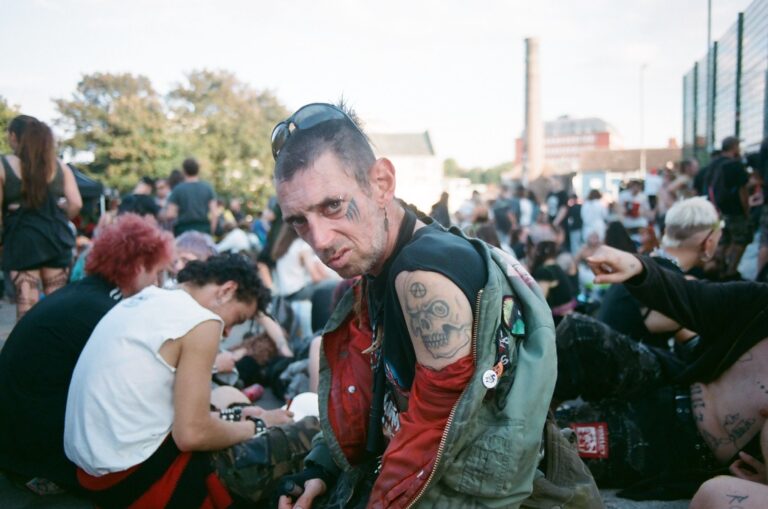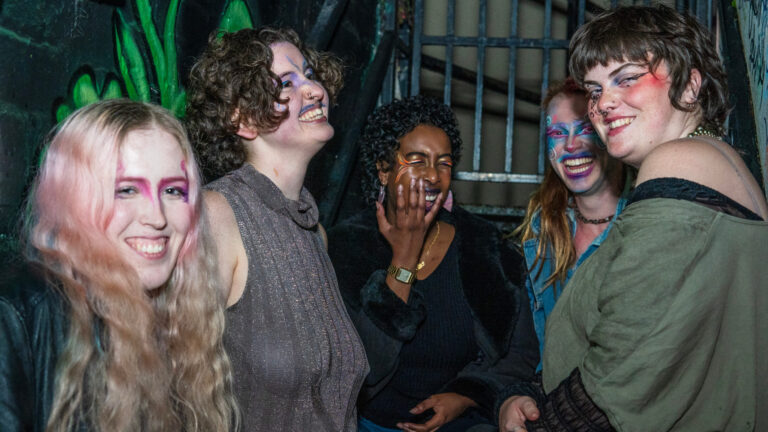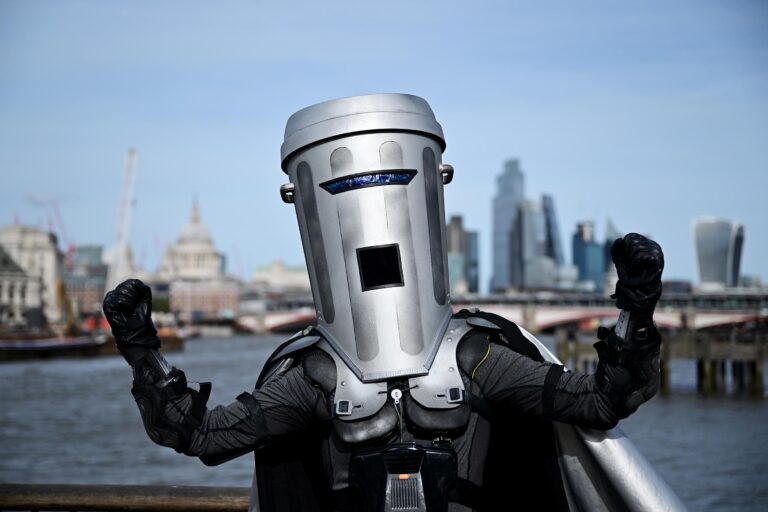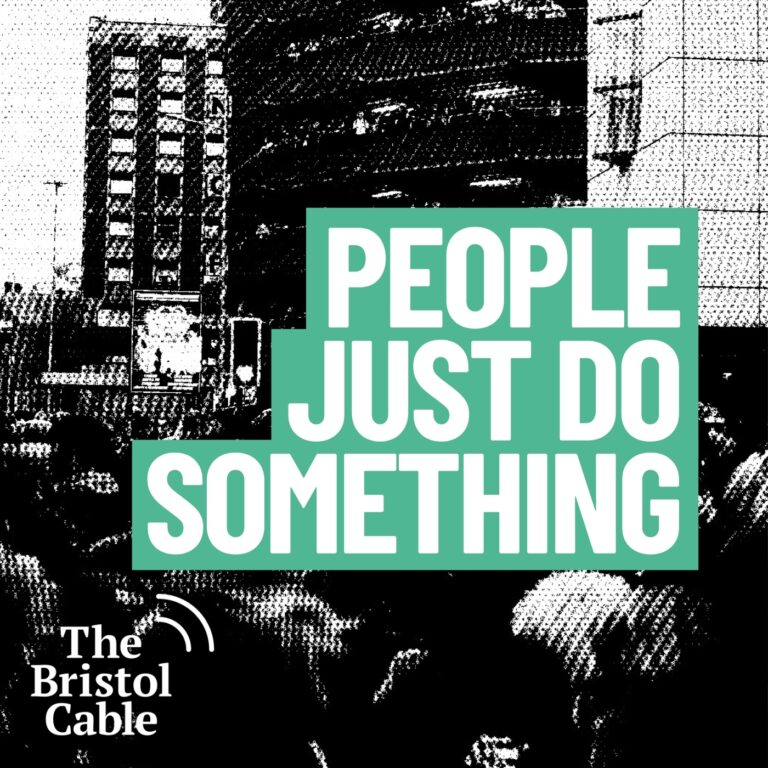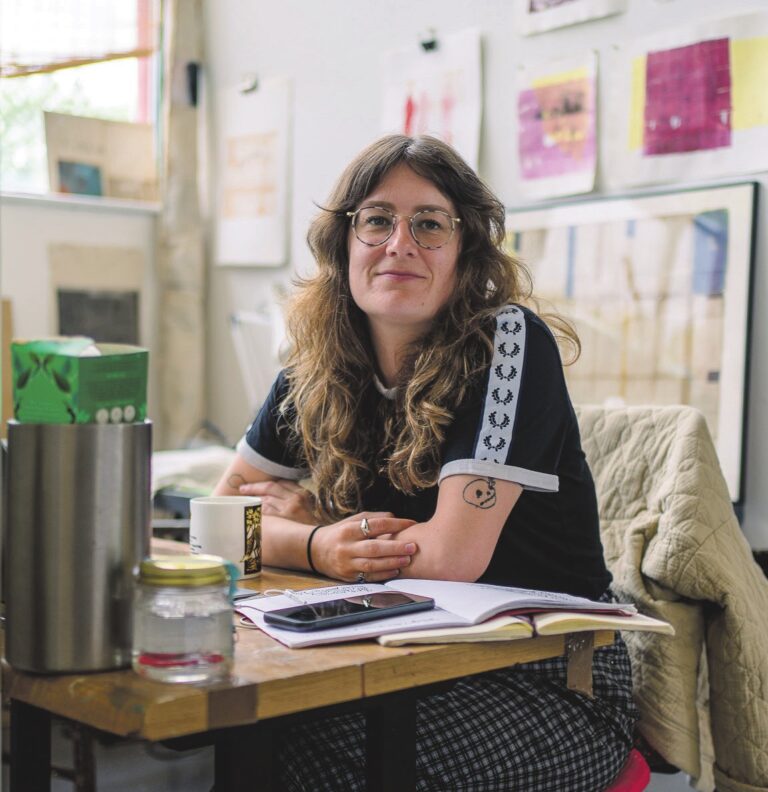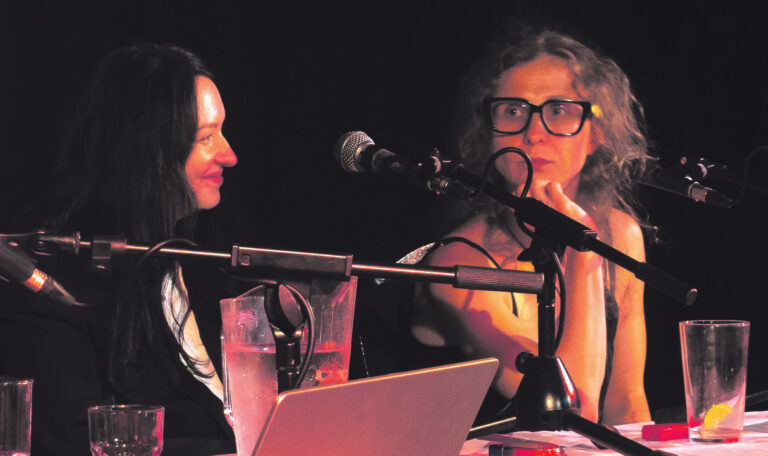‘Speaking is a political act’: Bristol artists push Arnolfini for action over Palestine controversy
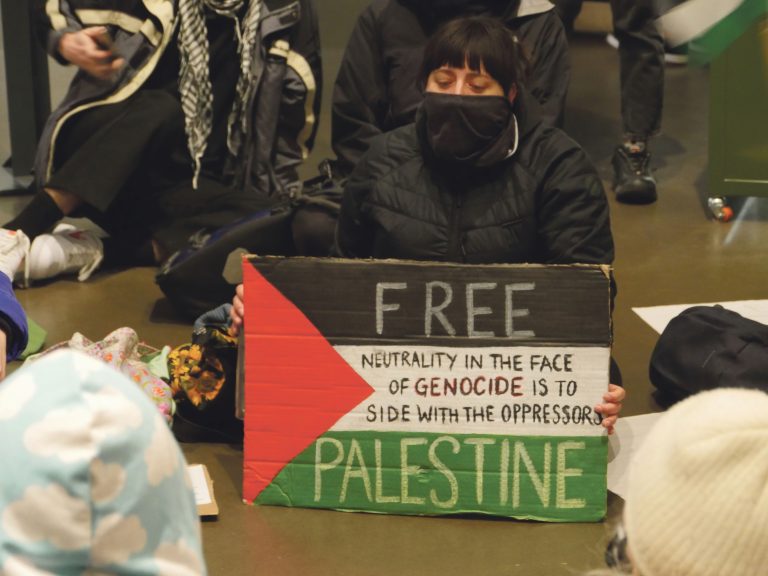
“The core of the problem is that the Arnolfini have failed to uphold freedom of expression on Palestine… in a way that we felt was really concerning, and could set a dangerous precedent across the arts and charity sector.”
This is the view of singer, composer and sound artist Nik Rawlings, who has a particular interest in the human voice as a tool for exploring ideas about identity and community – and who is given permission to speak. This has become particularly resonant in relation to the ongoing war in Gaza, as Palestinians and their supporters try to raise awareness of what is happening.
“If you’re able to use your voice, it is your primary mode of communication beyond the non-verbal,” says Rawlings, who uses they/them pronouns. “So it is a deeply political act to speak.”
Rawlings joined hundreds of other artists in condemning Arnolfini’s decision in November to cancel two events from the Bristol Palestine Film Festival. The prominent Bristol gallery had justified the move by saying it “could not be confident that the event would not stray into political activity”.
Though the events themselves – including a screening of the film Farha by Jordanian-Palestinian director Darin J Sallam, and a poetry evening featuring hip hop artist and activist Lowkey – were later hosted by other venues, the decision sparked widespread condemnation and anger among Bristol’s artistic communities.
Activists staged two peaceful sit-in protests in the Arnolfini’s foyer, in late November and December, demanding an explanation of the decision and accusing the gallery of complicity in genocide against the Palestinian people.
“After those first couple of sit-ins, which were pretty successful in being visible and disruptive, we coalesced fairly organically around the artists that had attended and started to build a bit of a group around the campaign,” explains Rawlings.
The Bristol artists – connected via a WhatsApp group that includes several hundred members – became affiliated with Artists for Palestine, a campaign group which was formed in 2015.
Artists for Palestine exists to “support the Palestinian struggle for freedom, justice and equality”, according to their website, and pledges to “accept neither professional invitations to Israel, nor funding, from any institutions linked to its government until it complies with international law and universal principles of human rights.”
‘Free space for debate and discussion’
At the time of writing, Bristol Artists for Palestine’s call for artists to disengage from the Arnolfini has attracted the support of over 1,200 signatories including writers Alice Oswald and Nikesh Shukla, and musicians such as Giant Swan and Massive Attack’s Robert Del Naja.
Aside from an official statement and apology from Arnolfini, the group’s core demand is for the gallery to be a space where debate and discussion can freely take place.
Rawlings says they are worried that Arnolfini’s “wilful misreading of the Charity Commission guidelines” around political activity risks setting a dangerous precedent across the arts and charity sector.
Rawlings mention the situation in Germany, which has been notable among European countries for its particularly harsh restrictions on Pro-Palestinian protests and crackdowns on artists and musicians expressing opposition to the Israeli bombardment of Gaza.
Bristol Artists for Palestine is geared towards constructive conversations with the Arnolfini management, and hopes to enter into mediated discussions with the gallery’s board members.
In January, Arnolfini apologised for the debacle via a statement on its website: “We wish to express our deep regret for the distress caused to those we consider allies.”
“We also fully acknowledge that the original communication regarding these programming changes was not clear enough, all of which we apologise for without reservation.”
But for Rawlings, this statement does not go nearly far enough. “Their statement says nothing about the decision-making. It addresses that there’s been some failure of governance, which is an understatement. But it says nothing about cancelling and censoring Palestinian voices during a genocide.”
Despite being deeply opposed to the Arnolifini’s decision, Rawlings stresses that the group’s campaign is aimed at the Arnolfini management, not the majority of the gallery’s staff. “They’re a major cultural employer in the city. We owe it to the staff members who had no part in making that decision not to put them at risk. They are stakeholders, they’re colleagues, they’re collaborators, they’re people we respect and like.”
Ultimately, the group hopes to be able to rebuild trust with the gallery. “It’s not good for any of us just to trash the Arnolfini. We have a vested interest in bringing them to the table and getting a good result, which for our signatories looks like a public statement addressing the decision, recommitting to freedom of expression with no exception on Palestine.”
The Arnolfini did not reply to our request for comment.


